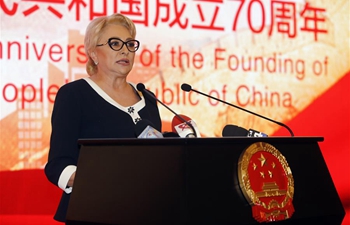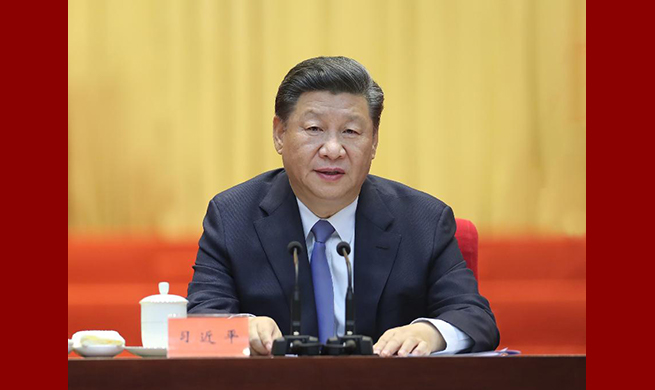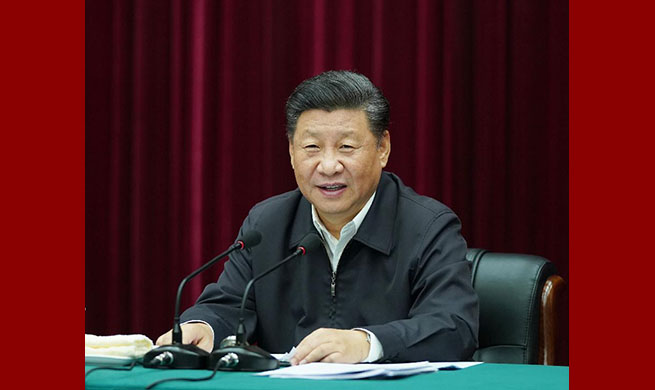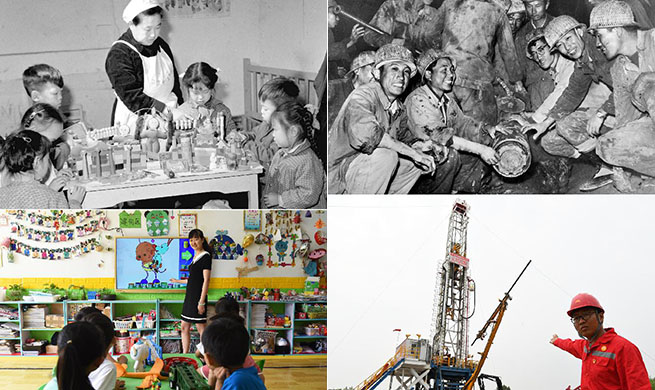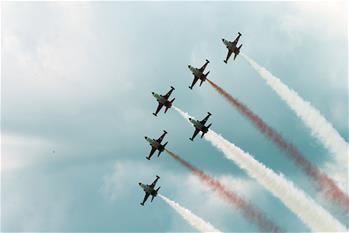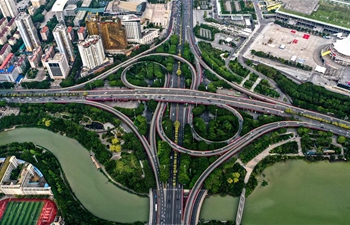ISTANBUL, Sept. 21 (Xinhua) -- The past seven decades have witnessed the rapid rise of the People's Republic of China, which in turn enables the country to contribute more in an interdependent world, a Turkish scholar has said.
Altay Atli, an adjunct professor at the Department of International Relations of Koc University in Istanbul, spoke highly of China's development in a recent interview with Xinhua.
In an interdependent world where all actors are connected with each other, countries develop in an interconnected way, "which means you benefit from other countries' development and other countries benefit from your development," said Atli.
As China has grown to be the world's second largest economy, it has become a production base for the world, or "a global factory," the scholar said.
"This is important for the rest of the world," he said. "Chinese production has increased the purchasing power of the citizens or customers all around the world."
Chinese components and intermediate products are supporting the production and, therefore, the exports of other countries, including Turkey, Atli added.
He noted that China is not only a producer, but a consumer of numerous resources and products, including energy resources, raw materials, technological products, services and others.
Stressing that "China is a large market," he said he has seen many countries, especially those whose economies are dependent on exporting raw materials and primary products, benefiting from China "simply because they could sell to China in large quantities."
China's participation in global economic governance is also a way to contribute to the global economy, as the country has been pushing for reforms to the existing structures on the one hand and complementing the existing system with new institutions like the Asian Infrastructure Investment Bank on the other, said the scholar.
"I see them not as an effort to replace the existing system, because that wouldn't work, we still need the existing system," Atli said. "But we need the existing system to be fixed."
China's contribution is also through structures and mechanisms, said Atli, adding that the Belt and Road Initiative (BRI) is among them.
In the Middle East, a region beset by turmoil and instability, China has also played a role in helping make peace in its own way, said Atli.
"Peace and economics are very much related with each other," he said, adding that the BRI has contributed to the economic welfare in the region by means of infrastructure construction. He cited China's role in the Israeli port of Haifa as an example.
He also spoke highly of China's diplomatic efforts in mediating peace between the Israelis and the Palestinians.
"Because the Middle East is so complicated, it cannot be solved by one single actor," he said. "There needs to be a collective solution to this, but China's role is nevertheless important. Because if you look at the major powers and the regional powers who are involved in the region, China is the only country without historical baggage here."









